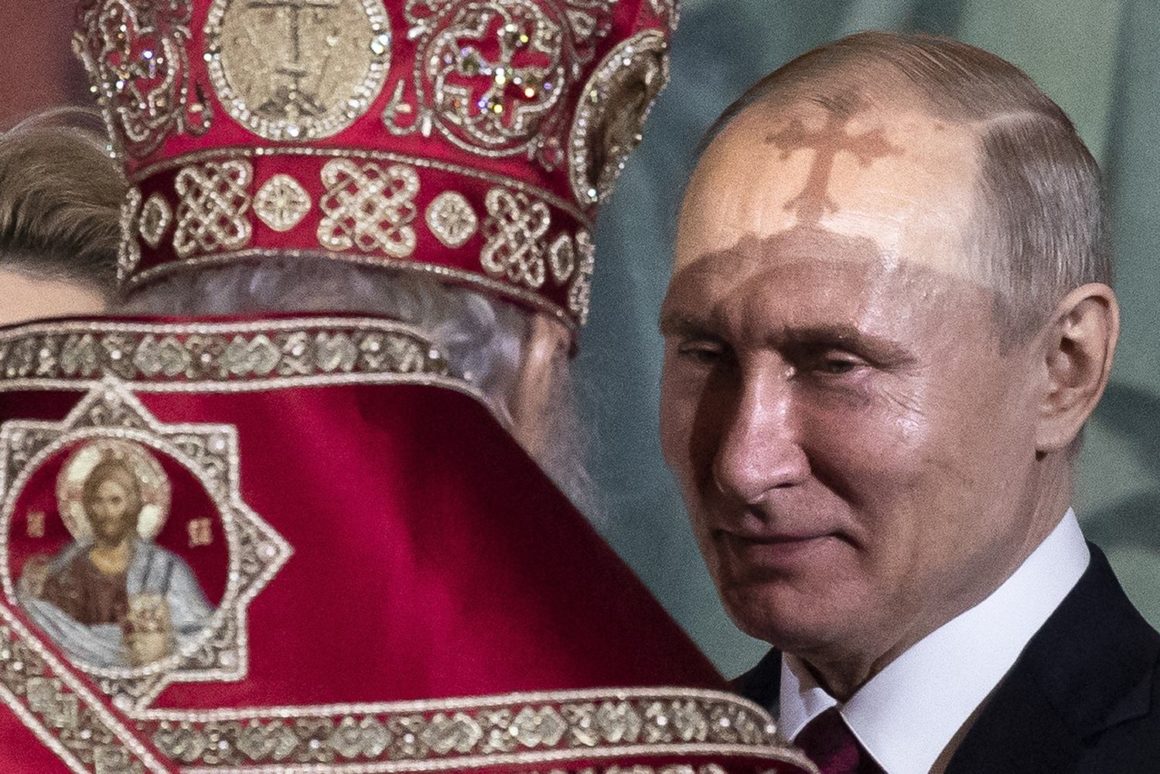Russia’s full-blown war against Ukraine has for years taken place with the full blessing of the Russian Orthodox Church, whose Patriarch Kirill told Russian soldiers that getting killed while invading Ukraine would wash away their sins.
However, the church's approval for the bloodshed in Ukraine reached a new level on 27 March, with the adoption of a document that officially dubbed Russia’s invasion of Ukraine a “holy war.”
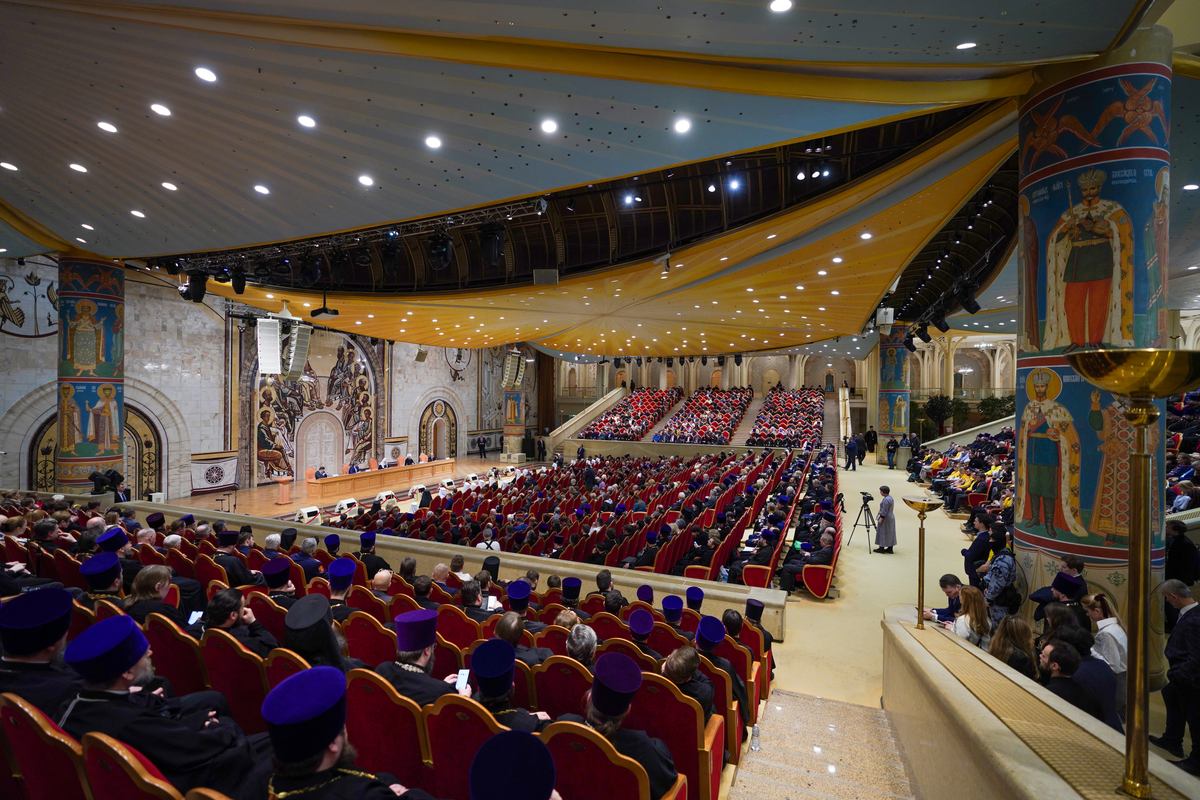
Titled “Decree of the 25th World Russian People's Council ‘The present and future of the Russian World’,” it justifies Russia’s war of aggression in Ukraine, anointing the country with a messianic role against the “Satanic West” (see full English translation here).
Russia is fighting a “holy war” in Ukraine: the decree in brief
In summary, the decree, adopted at the Russian Orthodox Church's political convention ("World Russian People's Council"), extolls traditional mores, denies Ukraine any sovereignty, and sanctifies Russia’s war of aggression and occupation for the sake of the “Russian world.” It:
- Calls Russia’s invasion of Ukraine a “national liberation struggle of the Russian people” against the “Kyiv regime” and the “collective west behind it” during which Russians defend their “life, freedom, statehood, civilizational, religious, national, and cultural identity” and “right to live on their own land” in a “united Russian state”;
- Calls Russia’s invasion of Ukraine a “holy war,” in which Russia has the mission of a “Restrainer” that defends the “holy Rus” from the “onslaught of globalism” and the “victory of the Satanic West” as well as the world’s “Restrainer” that protects it from evil and “attempts to establish universal hegemony”;
- Calls Russia the “creator and protector of the Russian World,” which includes all for whom the “shrines” of Russian civilization and “great Russian culture” are the highest value;
- Denies Ukraine (or Belarus, for that matter) any sovereignty. The “decree” only mentions Ukraine by its name once, stating that the war’s aim is for “all the territory of modern Ukraine” to enter “a zone of exclusive influence of Russia” where there will be no “Russophobic political regime hostile to Russia and its people.” Instead, Russia refers to Ukraine as the “lands of the south-western Rus,” a flashback to the medieval state of Kyivan Rus;
- Calls to “reunify” the “Russian people,” meaning Russians, Ukrainians, and Belarusians, states that all Eastern Slavs are Russians, calls to legislate the imperial doctrine of “triunity” of the Russian people;
- Defines Russia as a refuge for holders of “traditional values” and sufferers from “Western globalism, wars, and discrimination”;
- Calls to purge “Western scientific theories and schools” from domestic education based on whether they correlate with the “system of worldview ideas and moral values of Russian civilization”;
- Calls for pronatalist initiatives to revive the “traditional large family” in Russia and “traditional family values,” sets a goal to increase its population to 600 million in a hundred years;
- Calls to defend the family from “propaganda of abortion” and “sexual perversions,” instill the “cult of the family, large families, marital fidelity, responsible parenthood, and the attractiveness of family life”;
- Calls to limit migration, and for the protectionism of the domestic labor market and economy.
The “Russian World” ideology has crystallized and become more nationalistic
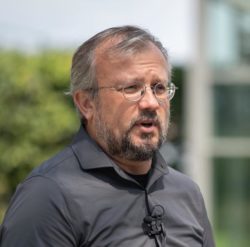
In the words of theologian Cyril Hovorun, this “decree” is a step towards crystallizing the ideology of the “Russian world,” which he believes is a heretical doctrine driving Russia’s war.
In short, the “Russian world” is an expression of tribalism: the belief that belonging to a tribe makes you different and exceptional. Only here the “tribe” is expanded to a “Russian civilization” which is believed to be bestowed with a divine “mission” – to save the world from itself. Particularly, by invading Ukraine.
But what consequences will a “decree” pronounced by the church have on Russia’s politics?
Despite the official division of church and state in Russia, in reality, the roots of the “Russian world” ideology gripping the minds of the Kremlin elite are theological. Previously being rather amorphous, it has now become more defined and broadcast “urbi et orbi” at the council meeting and its “decree,” Hovorun says.
“This council is a political arm of the Russian Orthodox Church. Even though the latter is itself becoming increasingly political, the council is still far more political. What Patriarch Kirill thinks but hesitates to publicly proclaim as the head of the church, he delegates to the council to articulate.
Formally, its decree or ‘order’ was promulgated by the council, but effectively it reflects what the patriarch himself wanted to communicate to the Russian political elites and society. It is a sort of his bull ‘urbi et orbi,’ i.e., intended for the Kremlin and the entire ‘Russian world’,” Hovorun told Euromaidan Press.
The "decree" brings nationalism to a new level unseen since Nazism and possibly outstripping the latter, Cyril Hovorun asserts.
In the years leading up to World War II, the Nazis led a campaign to purge the humanitarian knowledge of any Jewish influence. This was manifested by banning and censoring works by Jewish authors, firing Jews from scholarly and influential positions, a propaganda campaign to vilify Jews as dangerous "outsiders" who tainted German thought and culture, destroying Jewish books and sites of historical memory, and claiming Jewish ideas as “Aryan.”
However, the "Russian world" ideology, in the interpretation of the council, has a more ambitious goal of getting rid of any Western influences upon humanitarian knowledge, Hovorun says. In turn, this enables Russia’s twisted worldview, in which Russians continue perceiving themselves as victims despite invading Ukraine:
“It effectively attempts to nationalize rationality. This attempt is as ambitious as it is unattainable. Nevertheless, it affects the way how an average Russian perceives the reality around him or her. Such a perception, when ‘nationalized,’ becomes Orwellian: with black turning white, Russia becoming a victim of its own war, and its atrocities serving the goals of ultimate humanism.”
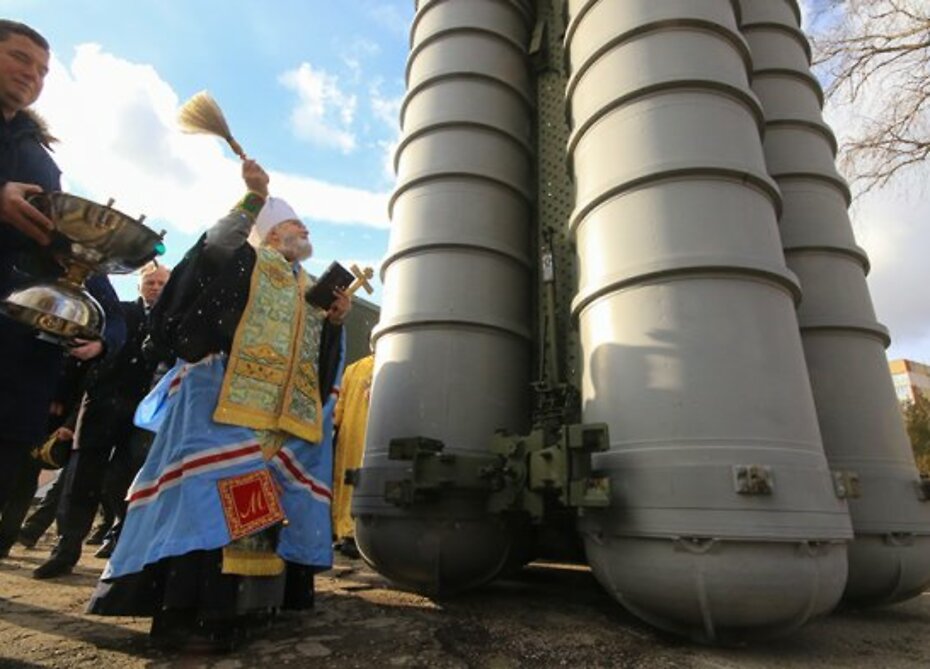
Kirill now sees Russia as a katechon
The church “decree” is brimming with messianic undertones, prescribing Russia a global mission with roots in the Middle Ages.
“The highest meaning of the existence of Russia and the Russian World created by it — their spiritual mission — is to be the world's ‘Restrainer,’ protecting the world from evil. The historical mission is to permanently destroy attempts to establish universal hegemony in the world, attempts to subordinate humanity to a single evil principle,” it says.
This overtly messianic turn is a new development in the thinking of Patriarch Kirill, according to Cyril Hovorun, who had spent years working with the Moscow Patriarchy in Russia:
“No doubt that the wording of ‘holy war’ in the council's ‘decree’ was carefully and purposely chosen by the patriarch himself. In 2014, for example, he opposed such wording, and now he accepts it. This demonstrates how dramatically his views have evolved."
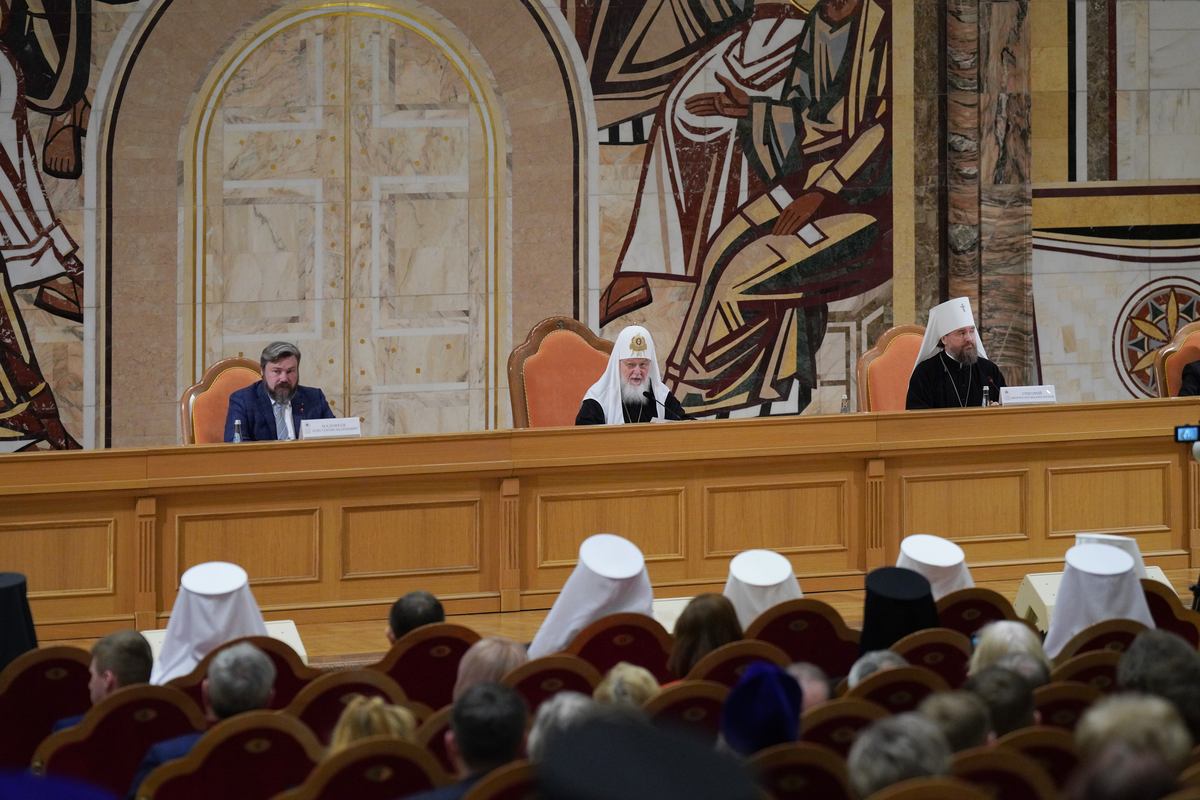
"From my work as his secretary, I know that any references to the term ‘katechon’ as describing the ostensible universal Russian mission to protect the world from evil, were unacceptable for him. And now they at the core of the council's document. Kirill completely embarked on messianism, which indeed has long roots going back to the Russian Middle Ages.”
The concept of a “katechon” originates from the Greek verb "τὸ κατέχον," meaning "that which withholds" or "restrains." In Christian theology, particularly in the New Testament, the term appears in 2 Thessalonians 2:6-7, where it refers to a force or entity that restrains the arrival of the Antichrist and the end times.
In this biblical context, the katechon is seen as a mysterious power that holds back the forces of evil and chaos, delaying the apocalypse until the divinely appointed time. Some interpretations identify the katechon as the Roman Empire, the Church, or the Holy Spirit.
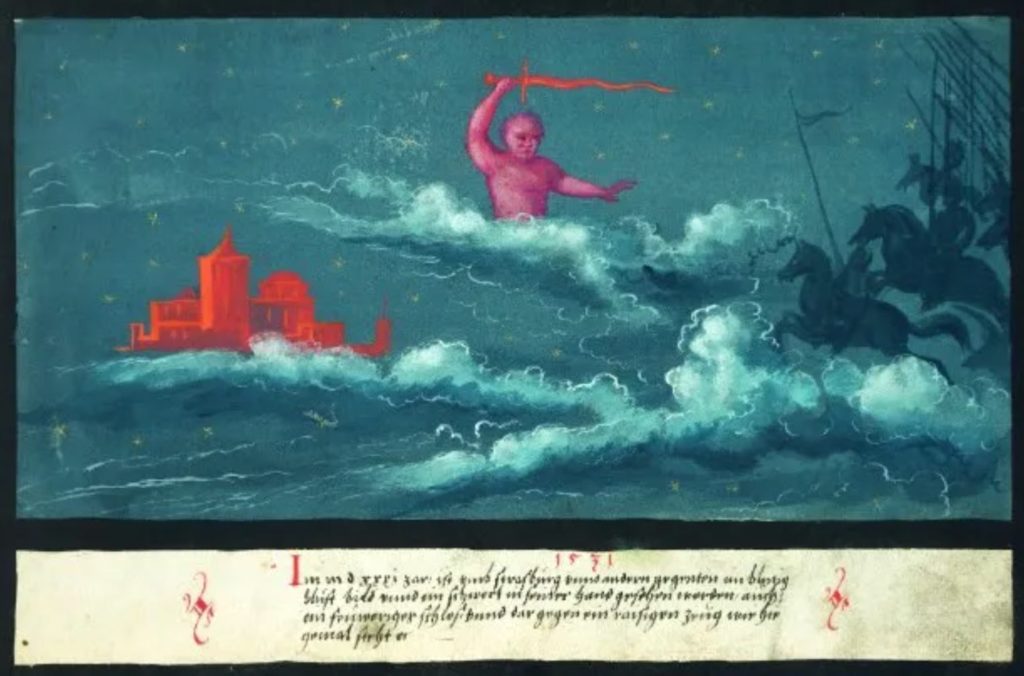
It especially found fertile ground in the Moscow Tsardom, which had coined the idea of Russia as a “Third Rome” (after the fall of Rome and Constantinople) as the last bastion of true Christianity. In religious writings, Russia was seen as having a divine mission to save the world from evil and to establish a truly Christian empire, with some interpretations labeling it as the katechon. By preserving the true faith and resisting the forces of heresy and unbelief, manifested in religious rigidity, Russia was thought to be delaying the apocalypse.
In the 19th and early 20th centuries, Russian thinkers like Fyodor Dostoevsky and Vladimir Solovyov further sophisticated and “rationalized” this idea. They saw the Russian monarchy and the Orthodox Church as the katechon, the bulwark against the revolutionary and atheistic forces threatening Christian civilization. The Russian Tsar was sometimes portrayed as the "restrainer" who held back the Antichrist and the end times.
After the Russian Revolution and the fall of the monarchy, some Russian émigré thinkers continued to invoke the concept of the katechon. They saw the Soviet Union as an embodiment of the evil forces that the katechon was meant to restrain and believed that the Russian diaspora had a sacred mission to preserve Russian Orthodox culture and values.
Now, the "katechon" is Russia and the "forces of evil" lay in the West, as follows from "Russian World" ideology.
“In its present form, the messianism upheld by Patriarch Kirill and President Putin resembles that of Chancellor Hitler, who in his Mein Kampf also promulgated a ‘sacred mission of the German people’,” Cyril Hovorun asserts.
Trending Now
Hitler’s messianism was also influenced by the concept of the katechon.
German political theorist Carl Schmitt invoked it into Nazi ideology. He saw Hitler as the messianic leader of the Nazi State who acted as the bulwark against the forces of chaos and destruction, particularly against the perceived threats of Bolshevism and Jewish influence.
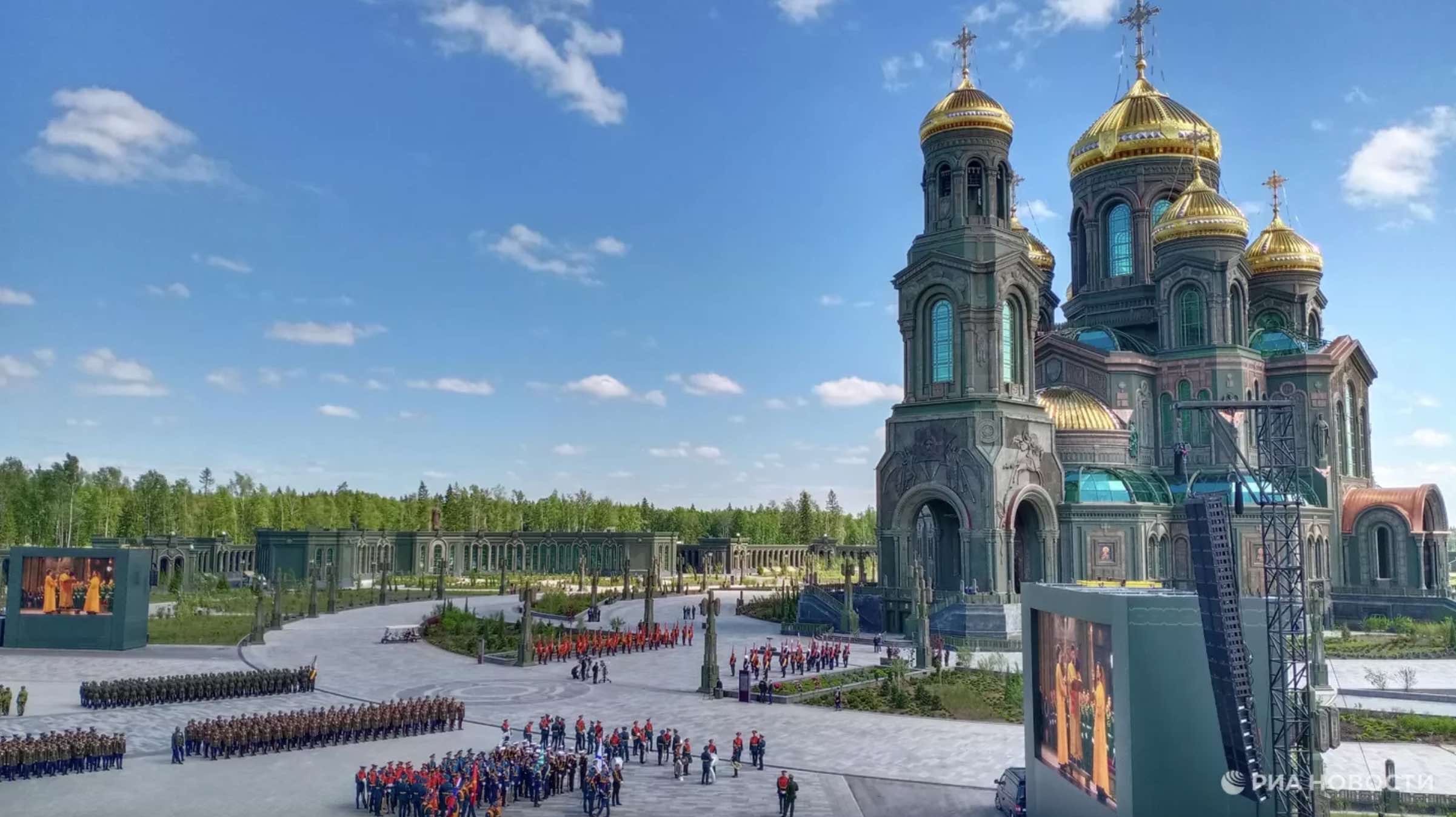
In a sense, Hitler and the Nazi state took on a quasi-religious role as the katechon, the restrainer that would hold back these alleged enemies and ensure the survival and triumph of the Aryan race, much like Kirill sees Russia as a protector against Western liberalism and “hegemony.”
What about Russia’s “traditional values”?
The selling point of the Russian Orthodox Church as a protector of “traditional values” has gained Russia many far-right and family-values fans abroad. Some even consider moving to Russia, which is now promoting itself as a haven for those suffering under the yoke of wokeness.
However, Russia’s cultivation of such an image worldwide through the work of such organizations as the World Congress of Families is nothing but a mirage, says Cyril Hovorun.
“In contrast to many sincere believers in 'traditional values' in the world, both President Putin and Patriarch Kirill rather cynically instrumentalize them in trying to achieve their goals. Neither of them lives those values in their personal life: Kirill as a monk is not supposed to have a family, while Putin has a rather disordered family life with many affairs, as the investigations by Aleksey Navalny, who died in a Russian prison recently, have demonstrated.
Besides, both support the war against Ukraine, which has destroyed so many Ukrainian and Russian families. It is absurd and hypocritical to destroy hundreds of thousands of real families in the name of abstract ‘family values’,” he told Euromaidan Press.
The war aside, realities of Russian domestic life are a far cry from the promoted “traditional values.”
It is a world leader in abortions, with 46 per 1000 women far exceeding the median 11 among countries of Europe and North America, as follows from research by the reputable Guttmacher Institute. It boasts the world’s third-highest divorce rate. Neither are Russians pious: their 7% weekly worship attendance rate is lower than Germany's, France's, or even the UK's, and is abysmally lower than the USA’s 36%.
So, if the life of the self-appointed “katechon” is far from godly, what are the real reasons for Russia’s “holy war”?
“They are quite banal and completely coherent with any classical colonial war: to put Ukraine’s territory and its resources under the empire's control, subjugate its people, kill or force out those who disagree, and impose themselves as a ‘super-power.’ This is the bottom line of the Russian aggression stripped of the pretentious messianic rhetoric,” Hovorun stresses.
Deafening silence from church leaders in response to Russia’s “holy war”
Given that the nature of the “Russian world” ideology is outright antithetical to Christianity, which precludes any national exceptionalism that Russia brims with (“There is neither Jew nor Greek… for ye are all one in Christ Jesus”), and is an attempt to justify a murderous war in the name of pseudo-theological concepts, one would think that it would garner widespread opposition from Christian leaders worldwide, who would speak up against the distortion of their faith.
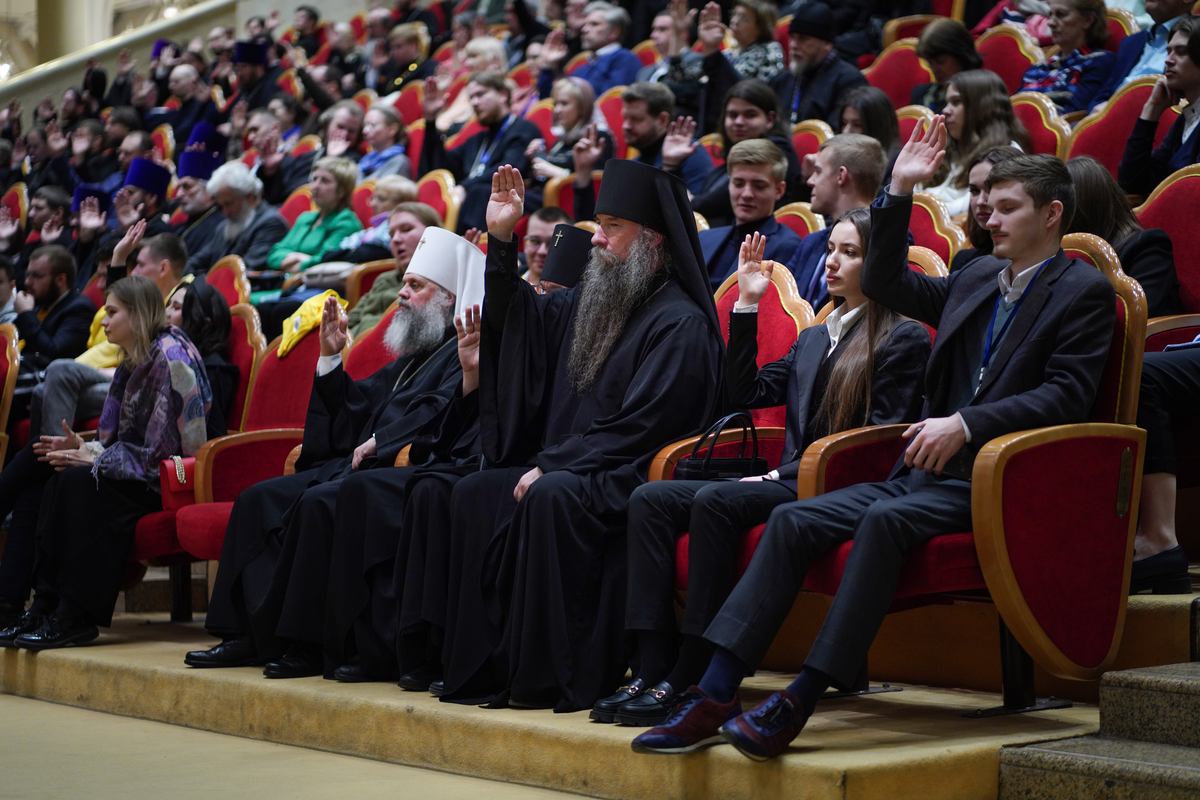
Yet, the outrage is yet to be heard, both inside and outside the Russian Orthodox Church.
One notable exception is a declaration signed by world-renowned theologians at the start of Russia’s invasion, which condemned the Russian World as a heresy, similar to the great heresies of the early Christian era. Cyril Hovorun was one of the authors of the document.
After the Russian Orthodox Church issued its Russian World “Decree” on 27 March, comprehensive voices of condemnation were only heard in Ukraine.
The Ukrainian Council of Churches and Religious Organizations minced no words in its statement condemning the “inhumane neo-Nazi documents, which completely contradict the truth, spiritual and moral precepts of Christianity, Islam, and Judaism”:
“As representatives of the religious community of Ukraine, we affirm that Russia's aggressive war against our homeland is a diabolical affair, and complicity in it on the side of the aggressor, including through public justification, is a spiritual crime,” representatives of Ukraine’s religious communities wrote, calling on their global counterparts to also speak out against the document.
However, this call has yet to deliver any results. Inside the Russian Orthodox Church, clerics are too conformist – or afraid to speak up, says Cyril Hovorun:
“In contrast to what Patriarch Kirill states, claiming that never in its history was the Russian Orthodox Church freer than now, I would claim that this church lives one of its lowest moments of unfreedom. Within this church, respect and love as the foundations of human interaction have been substituted by fear. Even those who disagree with the above-mentioned ‘order’ are afraid to speak up against it.”
Outside of Russia, a paralyzing fear of antagonizing the Russian Orthodox Church seems to prevail, says Hovorun:
“The Christian world, including its ecumenical organizations, also seems to be paralyzed, except for only a few voices. Most Christian leaders prefer to keep silent in the name of preserving ‘unity’ and good relations with the Russian Orthodox Church. I think such an attitude is also un-Christian.”
Surprisingly for some, the Moscow-affiliated Ukrainian Orthodox Church which is under fire in Ukraine for failing to convincingly sever ties with Russia came out with a statement condemning the declaration of its (possibly, former) metropoly and sought to distance itself from the Russian World ideology it had promoted over the years.
“In our opinion, calls for the destruction of Ukraine and the justification of a military aggression are inconsistent with the Gospel teaching,” says the statement of the Ukrainian Orthodox Church’s Department for external church relations.
Cyril Hovorun is not convinced:
“I consider this statement as one of the grass-roots initiatives and not stemming from the position of the church's leadership. This leadership remains silent. They believe that they would personally survive in the war, which is underpinned by such statements. They do not seem to care what will happen to their flocks, however.”
Related:
- Anatomy of treason: how the Ukrainian Orthodox Church sold its soul to the “Russian world”
- How the Russian Orthodox Church enabled Putin’s war against Ukraine
- Russian World: the heresy driving Putin’s war
- Russian ideology: imperialism, militarism, and racism

